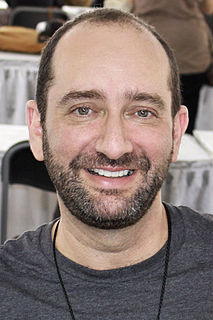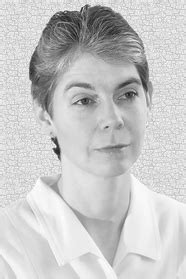A Quote by Jeannette Walls
Mom always said people worried too much about their children. Suffering when you're young is good for you, she said. It immunized your body and your soul, and that was why she ignored us kids when we cried. Fussing over children who cry only encouraged them, she told us. That's positive reinforcement for negative behavior.
Related Quotes
And my daughter said, 'Why are you yelling at us?' and I said, 'I'm trying to discipline you!' And then she looked up at me with her tear-stained eyes and said, 'This is how you teach children, by making them cry.' And it was such a clenching reminder - she won not only the argument, but she won life with that statement. I just burst out laughing, and I think they were so surprised that I burst out laughing, that they did too.
The Olinka girls do not believe girls should be educated. When I asked a mother why she thought this, she said: A girl is nothing to herself; only to her husband can she become something. What can she become? I asked. Why, she said, the mother of his children. But I am not the mother of anybody's children, I said, and I am something.
An old woman I loved very much when I was young - the wife of Jean Villard - she's just reciting poetry all the time, which is beautiful because it means she went back to the world of poetry that she loved when she was young. That's all she does - she almost doesn't recognize her children, but she recites Valéry and Baudelaire. So what? We're the ones who are suffering. She's not.
Sometimes, she said, mostly to herself, I feel I do not know my children... It was a fleeting statement, one I didn't think she'd hold on to; after all, she had birthed us alone, diapered and fed us, helped us with homework, kissed and hugged us, poured her love into us. That she might not actually know us seemed the humblest thing a mother could admit.
I hate Erma," I told Mom... "You have to show compassion for her..." She added that you should never hate anyone, even your worst enemies. "Everyone has something good about them," she said. "You have to find the redeeming quality and love the person for that." "Oh yeah?" I said. "How about Hitler? What was his redeeming quality?" "Hitler loved dogs," Mom said without hesitation.
People said things they didn't mean all the time. Everybody else in the world seemed able to factor it in. But not Lena. Why did she believe the things people said? Why did she cling to them so literally? Why did she think she knew people when she clearly didn't? Why did she imagine that the world didn't change, when it did? Maybe she didn't change. She believed what people said and she stayed the same." (Lena, 211)
Jessica Biel is a really interesting case. She actually called us after the table read and said, "You guys should go meaner." She pitched us, and said, "Look, I know there are a lot of things to make fun of me about. I don't want people to think you're pulling punches. Please, dive in." We asked, "Could we tell a joke about your friend and mentor Stephen Collins?" And she said, "Well maybe not so much in that area. As long as the jokes were about me, I'm game for everything."
My mother hid the struggle from us children. She complained about her salary, and she had a tough time. Although she became a headmistress, she still had to do a lot of sewing. The more I think about her, the more remarkable I realise she was. And she understood straight away when I said that I wanted to write.


































